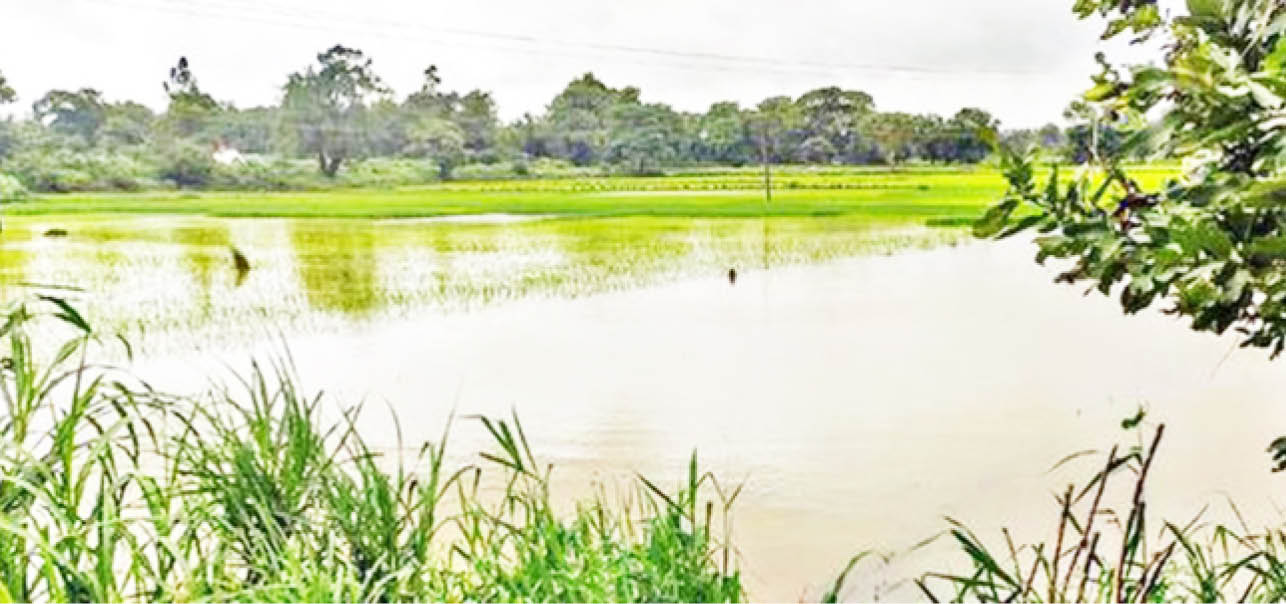Even as predictions trend that the flood crisis is hardly over, It was with measured relief that many victims of the recent flood disaster which affected several locations across the country, witnessed the recession of the deluge in some areas, as the water started flowing back to lower levels, while relatively high points in the flooded sections started appearing and offered the hope that at last, the apocalyptic dispensation was coming to an end.
Yet in areas that have started appearing as dry land, the sights they offered were no cause for joy, as in most cases they only brought to the victims, the stark reality that the life they knew before now, had been literally washed away forever. Homes, farms, roads, schools, churches, mosques, even shrines and cemeteries had been swallowed away to yield bare landscapes on which even starting life afresh remains daunting.
This is the plight of millions of Nigerians who for no fault of their own, are perennially rendered homeless – having to lose all their earthly belongings, and in some case even beloved family members, who could have died in the flood disasters from drowning, exhaustion and or attacks by wild animals like snakes, alligators and other aquatic predators. Their only sin was that they live in a country where governance is driven not by egalitarian considerations, but by parochial tendencies and class interests, which are ranked higher than the common weal by powers that be. And in all likelihood, the country will at the end of the day, easily forget the flood along with its ravages, and go back to business as usual, as far as responding to this disaster which can re-occur at any other time, is concerned.
With respect to the cause of this annual dilemma for Nigeria, two narratives are currently trending. In one vein is the annual series of flood warnings by the Nigerian Hydrological Services Agency (NIHSA), which this year featured the alert that between September and October, parts of the country – namely states like Kebbi, Niger, Adamawa, Taraba, Benue, Nasarawa, Kogi, Edo, Delta, Anambra
Ebonyi, Rivers and Bayelsa would go under water. As if with clockwork precision, the doomsday prediction came to pass. The rains came down and the floods went up with apocalyptic consequences for the designated states.
The other narrative is that Cameroon usually releases excess water from that country’s Lagdo Dam – an incidence that always leads to flooding in Nigeria as the so released water cascades into River Benue and overflows its tributaries thereby flooding their adjoining low-lying areas. This second narrative remains incomplete without the angle that when Cameroon was building the Lagdo Dam between
1977 and 1982, it was agreed by Nigeria that it would build a shock absorber Dasin Hausa Dam in Adamawa State, which would contain any excess water that could be released from the Cameroonian dam, as the latter is on a higher ground than Nigeria.
Distinct from each other as the two narratives are, their common point of interest is why the country suffers perennial flooding in various parts without any solution in sight. Does it then mean that for the past 45 years (1977-2022), Nigeria failed
to build this all important dam in Dasin Hausa, which would have saved the country from the recurring flood problem. Meanwhile, the rainfall induced flooding has also remained unchecked, hence today the country remains a flood prone terrain. The truth from these two narratives is that such a state of intractability of the flood crises remains unacceptable.
This is not only because of the avoidable damage which floods cause in the country. Rather the incidence of flooding portrays the country as hardly creative in managing its water resources. All across the world fresh water has long been
recognized and treated as a vital scarce resource. This means that the quantum of water that has turned out as killer floods in Nigeria could also have been harvested in dams and farmlands, where it could have been contributing to national development.
It is in this context that the committee recently set up by the Federal Government on flood prevention and disaster management – even if it came rather late is largely welcome. However, as is obvious, there is a difference between setting up a committee and having it deliver on its mandate. In that context remains the fact that the issue of flooding in this country is a hydra-headed matter. For instance the Minister of Water Resources Suleiman Adamu, has blamed the indiscriminate
construction of structures across water flow lines. According to him, the effects of the flood were exacerbated by people who built structures indiscriminately on water courses across the country. These water body banks may be seen to be dry in the short term, but could be subjected to flood contingency in the course of time.
It is significant that he placed the blame on a rather sensitive plank in the country’s interface between the federal and state governments, especially with reference to the controversial Water Resources Bill which is before the National Assembly. As is popular knowledge the bill’s journey through the National Assembly is overshadowed by a suspicion that it is driven by a surreptitious motive by the federal government to take over rich water-fronts from the states.
Hence, just as there is a growing expectation that something should be done to avert this perennial flooding crisis, such has to be done through a nationwide hydrological master-plan that will provide for a robust water resources management regime. Just as well, it is not in contest that for the committee to succeed it has to build a seamless interface between the federal and state governments. With the long drawn contest of wits between the federal and state governments over waterfronts, it is clear that both parties are yet to read each other’s position favourably.
In the interim, the country waits for another rainy (flood) season to come just next year. And the cycle of flooding, destruction and deaths will return.

 Join Daily Trust WhatsApp Community For Quick Access To News and Happenings Around You.
Join Daily Trust WhatsApp Community For Quick Access To News and Happenings Around You.


